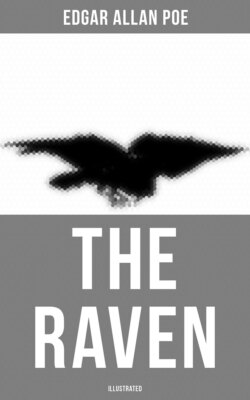Читать книгу The Raven (Illustrated) - Эдгар Аллан По - Страница 6
На сайте Литреса книга снята с продажи.
The Raven by Edward Everett Hale
ОглавлениеTable of Contents
‘The Raven’ by Edgar Allan Poe is the one of his poems which is most inseparably connected with his name in common recollection. It is entirely expressive of the dominant sentiment of his life, the longing and regret for beauty which he had once known; it is an excellent example of his most popular qualities as a versifier; and he himself has selected it as a means of explaining how a poet might develop his ideas into poetic form. Like ‘Annabel Lee,’ ‘Ulalume’ and others of Poe's best-known verse, ‘The Raven’ is a recurrence of the thought of a beautiful love early known and early lost. In its form it has all the quality of softness and sonorousness, of repetition and refrain which will be found elsewhere in Poe. In ‘The Philosophy of Composition ’ Poe explains the steps by which these elements were built up and combined into the present poem. It is possible that he tells exactly what took place in his own mind. He was, however, rather fond of hoaxing people; he was also fond of exact intellectual manipulation; and it is very possible that his account is really an after-statement of what might have been. However that may be, the poem is a wonderful example of the emotional, even sentimental, lyric of the middle of the 19th century. It is a mistake to think of Poe's poetry as being more music than meaning. ‘The Raven’ has a very distinct meaning although not such as could easily be reduced to a systematic statement. In our own day such reveries and meditations seem sentimental and old fashioned; a century ago they were the natural moods of hundreds of young men. And no poem in our literature better expresses just the mood that in that post-Byronic day was so common, not even anything by Byron himtelf. As an expression of its author and its own time ‘The Raven’ is perfect. It realises an ideal of beauty which is rare to-day and which many to-day find it impossible to appreciate, but it it an ideal of beauty and it is realised.
Edward Everett Hale.
